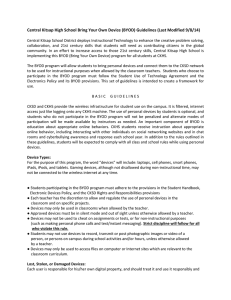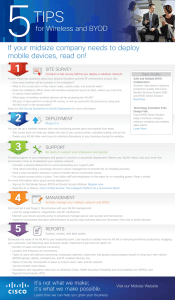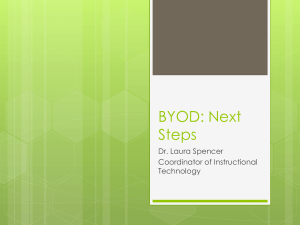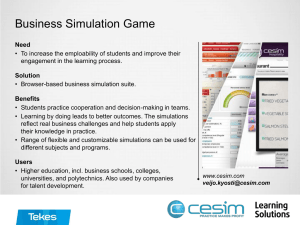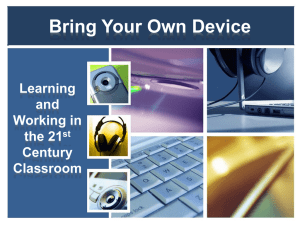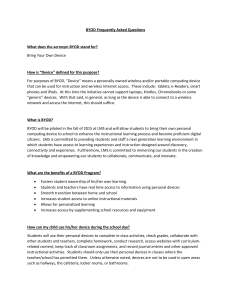Extension 7
advertisement
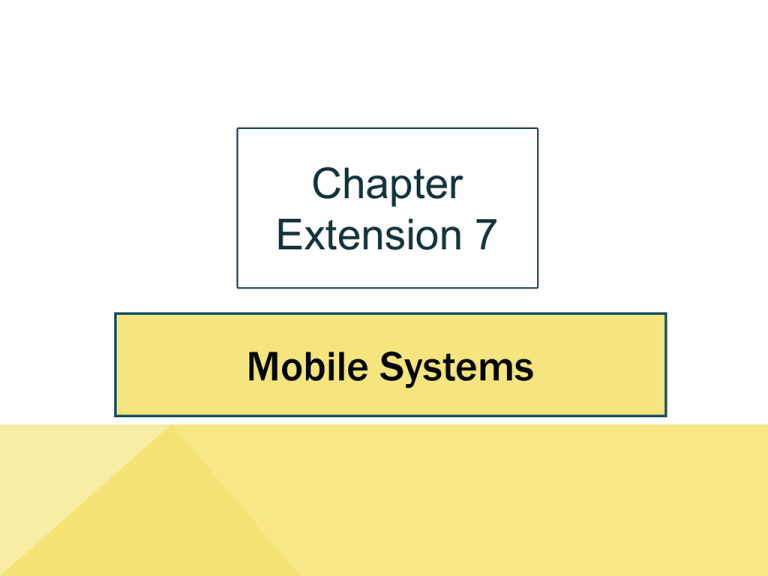
Chapter Extension 7 Mobile Systems Study Questions Q1: What are mobile systems? Q2: Why are mobile systems important? Q3: How do native and browser-based mobile applications compare? Q4: What characterizes quality mobile user experiences? Q5: What are the challenges of personal mobile devices at work? ce7-2 Q1: What Are Mobile Systems? • Information systems to support users in motion • Major elements in a mobile system – Users in motion – Mobile devices – Wireless connectivity – Cloud-based resources ce7-3 Mobile Device • Computing Device (display screen with touch input and a miniature keyboard) • Small (handheld) • Lightweight (< 2 pounds) • Power-conserving (batteries) • Capable Of Wireless Access ce7-4 Elements of a Mobile Information System ce7-5 Q2: Why Are Mobile Systems Important? Five Components of Mobile Change and Opportunity ce7-6 Q3: How Do Native and Browser-based Mobile Applications Compare? ce7-7 Q3: How Do Native and Browser-based Mobile Applications Compare? (cont’d) ce7-8 One Consequence of Browser Differences for Thin-client Applications ce7-9 GetHuGames SpiroCanvas ce7-10 Sophisticated HTML5 Application ce7-11 Which Is Better? • • • • • • • Depends on strategy and goals Application requirements Budget Schedule Tolerance for managing technical projects Need for application revenue Thin-client applications cheaper to develop and maintain • May lack the wow factor ce7-12 Q4: What Characterizes Quality Mobile User Experiences? Primary characteristics of quality mobile applications ce7-13 Chrome-less Mobile Windows Store Application ce7-14 Example of Application Scaling ce7-15 Example of IE10 Charm Sharing ce7-16 Use the Cloud ce7-17 Fire Roaming Message ce7-18 Q5: What Are the Challenges of Personal Mobile Devices at Work? ce7-19 Six Common BYOD Policies ce7-20 Advantages of Example BYOD Policies ce7-21

